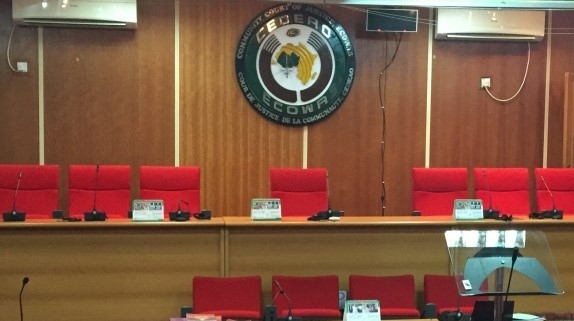-
ECOWAS Court dismissed Khalifa Abiola’s case against Nigeria, citing lack of legal capacity to sue on Kudirat Abiola’s behalf
-
The court affirmed jurisdiction over human rights violations but ruled applicants failed to establish direct or indirect victim status
The Community Court of Justice, ECOWAS, has ruled on a case filed by Khalifa Abiola and two others against the Federal Government of Nigeria over alleged human rights violations related to the assassination of late Mrs. Kudirat Abiola.
Delivering the ruling on Friday, Judge Rapporteur Hon. Justice Edward Amoako Asante declared the case inadmissible. The court ruled that the applicants lacked the legal capacity to sue, as they neither established a direct relationship with Kudirat Abiola nor presented a legal mandate to act as indirect victims on behalf of her estate.
The court also dismissed objections from the Federal Republic of Nigeria, which challenged its jurisdiction. Nigeria argued that the case was beyond the scope of Article 9 of the ECOWAS Court Protocol. The government also claimed the matter had already been settled by a national court and exceeded the legal time limit for filing. However, the court ruled that the case fell within its competence as it involved alleged human rights violations.
Filed under suit number ECW/CCJ/APP/62/22, the case was brought by Khalifa Abiola, Moriam Abiola, and Hadi Abiola, who sued on behalf of themselves and Kudirat Abiola’s estate. They alleged that Kudirat, wife of the late Chief MKO Abiola, was assassinated by gunmen in Nigeria while leading a campaign for her husband’s release from detention.
The applicants argued that the Nigerian government failed to hold those responsible for her murder accountable, including Sergeant Barnabas Jebila, who was named in a Commission of Inquiry report. They contended that this failure violated her fundamental human rights under the African Charter on Human and Peoples’ Rights.
While rejecting Nigeria’s claim that it was reviewing a case already decided by a national court, the ECOWAS Court clarified that its mandate was not to act as an appellate body but to assess member states’ compliance with international human rights standards.
However, since the applicants had not demonstrated legal capacity to sue on behalf of Kudirat Abiola’s estate, the court ruled the case inadmissible and dismissed it accordingly.








Discussion about this post